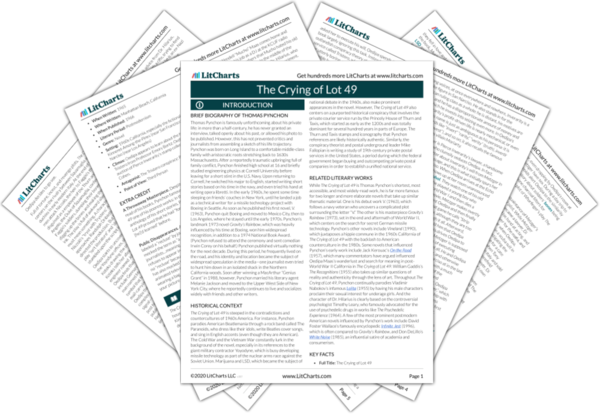Mike Fallopian’s bizarre story is actually based on surprising elements of fact (like Russian ships being in California in the 1860s). In other words, while Fallopian’s story violates all common assumptions about historical events, his conspiratorial interpretation of reality can actually be justified. Similarly, Pinguid’s reasoning about capitalism and communism is counterintuitive yet common: he considered both systems unjustifiably cruel, so he totally gave up on changing the world and became the thing he originally most hated. There is no question that men like Pinguid and Inverarity are principally responsible for the soulless landscape of cities like San Narciso. Finally, Pynchon specifically relates the battle that may or may not have occurred in the Peter Pinguid myth to the Gulf of Tonkin Incident that largely precipitated the American involvement in the Vietnam War in 1964, the same year that Pynchon wrote
The Crying of Lot 49. Famously, the Gulf of Tonkin attack was in large part a fabrication invented by the American government to justify intervening in Vietnam. At the time, however, its truth had not been widely established, so it was plausible but unproven, just like Fallopian’s whole theory. Of course, the fact that the United States government would launch a war based entirely upon self-interested lies shows that Pynchon understands the genuine appeal of conspiratorial thinking, which can never be proven but always
might be true.


